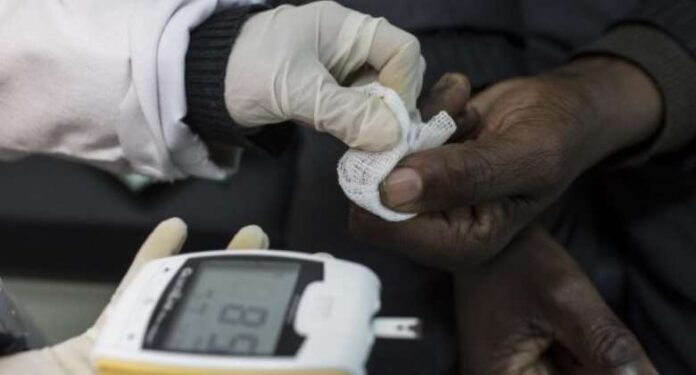More than 280,000 Ghanaian adults, 40 years and above, are living with type two diabetes due to poor dieting, inactivity and the intake of a lot of alcohol.
Presently, the Out-Patients Department (OPD) of the Greater Accra Regional Hospital for instance, records an average of 60 cases of diabetes daily, mostly among persons between the ages of 35 to 42.
Dr Harrienta Fiscian, a Senior Specialist and Endocrinologist at the Greater Accra Regional Hospital (Ridge), made this known in Accra on Wednesday. She was speaking at a training session for journalists on diabetes reporting organised by Novo Nordisk, a leading global healthcare company that provides services on diabetes care medications and devices.
- Amnesty: Unfair vaccine distribution is human rights violation
- B-BOVID Ticks All the Boxes on Climate Change Adaptability, Food Security, and Youth Employment
Diabetes is a chronic disease that occurs when the pancreas is no longer able to make insulin, or when the body cannot make good use of the insulin it produces.
Simply put, diabetes is when a person’s sugar level is high, and the body is unable to handle it and it occurs in two types: one and two. Type one diabetes can develop at any age but occurs most frequently in children and adolescents. This occurs when the body produces very little or no insulin and people who develop the condition need daily insulin injections to maintain blood glucose levels under control.
Type two diabetes is more common in adults and accounts for about 90 per cent of all diabetes case.
Dr Fiscian said usually, most people who developed type two diabetes do not show any symptoms at the early stages, “they be fine and live normal until may be after five years.” Type two diabetes is commonly diagnosed in adults and generally characterised by insulin resistance, where the body does not fully respond to insulin. Because insulin cannot work properly, blood glucose levels keep rising, releasing more insulin, which eventually exhausts the pancreas, resulting in the body producing less insulin, causing even higher blood sugar levels.
Dr Fiscian said although diabetes was mainly a lifestyle disease, it was sometimes genetic, and age related. “Presently, younger people are developing diabetes because they do not exercise, they are eating too much saturated fats which is not too good for their health,” she said. She encouraged the public to eat regularly, saying “at least three times in a day, have breakfast, lunch and supper on time to provide enough energy for the body, if you don’t eat, there is no energy, and you always feel hungry.
Dr Fiscian also advised the public to reduce the intake of white rice and take in more vegetables to reduce the risk of contracting the disease.

